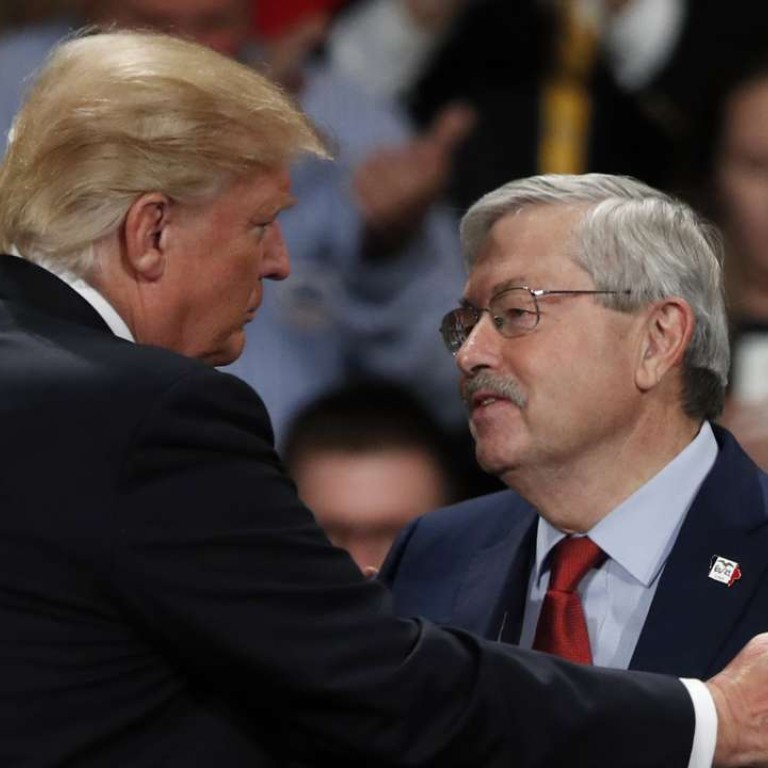
China ties are too valuable for the US to throw away on a whim
Zbigniew Brzezinski explains why Washington needs Beijing to assert itself globally, in a recent interview that also covers alleged Russian meddling in the US election, Trump and Taiwan
You’ve long spoken about the “political awakenings”, from the Arab Spring to the Maidan protests in Ukraine, as a new element affecting world affairs. Now, a different form of awakening is sweeping Western democracies – populism that seems to have an affinity for Vladimir Putin. What is that about?
I think the affinity for Putin is overblown, largely promoted by self-serving journalists. Certainly, some individual leaders of these movements profess admiration for his strongman approach to governance, but I see little evidence of some kind of popular groundswell in any serious country. Populist movements in the European democracies are the result of confusion and liberation. Europeans are liberated from the past of a continent divided by the cold war and now integrated economically, which has brought new challenges.

So there is confusion, and little agreement, about where they are headed in the future. As a consequence, we are getting a hysterical mess in which the recourse to violence, I’m afraid, will play an ever greater role. The situation will become more dangerous as time goes on.
Much of the above is also applicable to the current state of the American democracy. Instead of clear-headed leadership, we have sloganeering and an intensifying inclination towards domestic violence.
The CIA and FBI have accused Russia of trying to tip the recent US election in Donald Trump’s favour. President Obama has implicated Putin directly. Is Russia the culprit? Does Putin play that kind of direct role?
Having said that, I don’t mean to suggest Russian efforts were in any way a decisive factor for President-elect Trump’s victory. He won soundly for domestic reasons and because of his considerable political skill. But it is also wrong to say Russian efforts had no impact.
Watch: Russia responds to reports of interference in US election
President-elect Donald Trump upset the geopolitical apple cart by taking a call from Taiwan’s president and suggesting that he questions the long-standing “one China” policy. You negotiated that policy with Deng Xiaoping ( 鄧小平 ) when you served as national security adviser under president Jimmy Carter. What dangers do you see in this apparent change of course?
The danger I see is provoking antagonism in this foremost relationship of American foreign policy without any significant strategic accomplishment. It is not in our interest to antagonise Beijing. It is much better to have the Chinese work closely with us, thereby forcing the Russians to follow suit if they don’t want to be left out in the cold. That constellation gives the US the unique ability to reach out across the world with collective political influence.
I don’t think it is worth dissipating that with a gesture, such as the phone call, that is not followed by any constructive action. It is a pointless irritant. A world in which America and China are cooperating is a world in which American influence is maximised. If we reduce that through stupid irritations, what do we accomplish?
Some are concerned that the Trump administration will cosy up with Russia and seek to thaw present tensions. Wouldn’t that be good for global stability because it will then break the current momentum that is pushing China and Russia together in a hostile bloc against the West?
Russia is not a rival to America in terms of what it has to offer in dealing with China. The Chinese know very well that, though we may be weakened, depleted and confused, America is basically still No 1 in the world, and they, the Chinese, are also almost No 1. China thus has a choice to make. If it chooses to be against America, it will lose out. It is more in their interest to belong to the dominant pack. The reverse is also true for the US, if it pushes China away. There is nothing particularly complicated about this. It is only a matter of recognising some fundamental strategic realities. If we irritate the Chinese to the point where they begin to look for alternatives, they will find them. We won’t find that a very comfortable situation, but one fraught with dangers.

What China and the US must do in 2017 to improve relations
Some worry that Trump’s “America First” approach, which has questioned the value of alliances as well as trade and climate pacts, will amount to a withdrawal from the world. With Europe in turmoil, and Russia not a world-class player, wouldn’t that leave China as the only major power with a global outlook?
In today’s world, China can’t lead alone. Neither can the US
To underscore the strategic reality I’ve already outlined, the US and China are the world’s dominant powers. To the extent we have worked together over the years since the normalisation of relations, it has not been for the evil purpose of war or conquest, but for the good of enhancing the security and stability required for each to pursue their own interests. In today’s world, China can’t lead alone. Neither can the US. To put it in sharper, if seemingly paradoxical terms, if America tries to go it alone in the world without China, it will not be able to assert itself.
If we keep that in mind, we can begin, gradually, to shape a world that is more stable than the world today, which is very unstable and very unpredictable.
America’s long-term interests lie fundamentally with deepening our ties to China, not uprooting them for perceived short-term gain.
Zbigniew Brzezinski, the national security adviser to former US president Jimmy Carter, negotiated the normalisation of US-China relations in 1979. This is an edited excerpt of his interview with WorldPost, published last week
